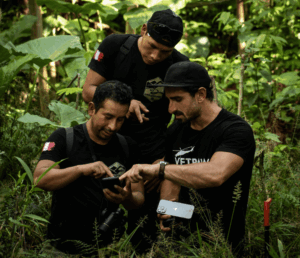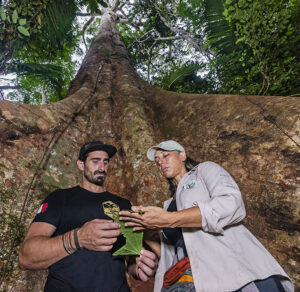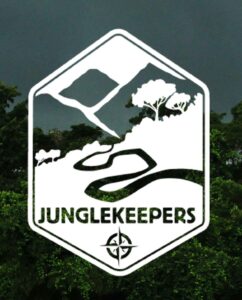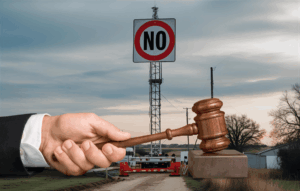When we talk about environmental health, it’s easy to focus on air pollution in cities, microplastics in the ocean, or the latest round of climate change policy debates. But deep in the Amazon rainforest, an environmental health crisis of global importance has been unfolding, and few people are as uniquely embedded in the heart of this battle as Paul Rosolie and the Junglekeepers.
microplastics in the ocean, or the latest round of climate change policy debates. But deep in the Amazon rainforest, an environmental health crisis of global importance has been unfolding, and few people are as uniquely embedded in the heart of this battle as Paul Rosolie and the Junglekeepers.
Their work isn’t just about saving trees. It’s about protecting one of Earth’s last remaining frontiers of biodiversity, defending Indigenous land rights, and maintaining the integrity of the ecosystem that regulates the planet’s climate and, by extension, our collective health.
Paul Rosolie: A Life Immersed in the Wild
Paul Rosolie isn’t your average conservationist. He’s part adventurer, part ecologist, and part storyteller. From a young age, he was drawn to the Amazon, eventually living among local communities and tracking elusive wildlife in the dense and often dangerous terrain of the Madre de Dios region of Peru. This area, one of the most biodiverse corners of the Earth, is also one of the most at risk.
Rosolie’s approach to conservation is radical in its intimacy – he doesn’t operate from afar. He lives the mission. Whether it’s chasing down illegal loggers with jungle rangers, swimming with anacondas, or documenting rare species on the brink of extinction, Rosolie immerses himself fully in the wild. His memoir, Mother of God, details these early years of exploration, offering a personal and visceral look at a rapidly vanishing world.
The Junglekeepers: A Movement with Teeth
In 2014, Rosolie co-founded Junglekeepers, an organization dedicated to protecting 55,000 acres (and growing) of primary Amazon rainforest. Their work is concentrated in the Las Piedras watershed, an ecologically critical area under siege from illegal logging, gold mining, and agricultural encroachment.
What sets Junglekeepers apart is their multi-faceted strategy:
- Permanent land patrols led by local and Indigenous rangers.
- Legal land protection to create enforceable conservation zones.
- Scientific research to document biodiversity and environmental impact.
- Community engagement that gives locals the tools and training to protect their ancestral lands.
Unlike conservation efforts that rely solely on outside funding or governmental intervention, Junglekeepers empower locals to become the guardians of their own territory. In doing so, they not only preserve the rainforest but also protect local cultures and knowledge systems that have evolved in symbiosis with this ecosystem.
The Roots of Environmental Health in The Amazon
The destruction of the Amazon isn’t just a localized tragedy. It reverberates through every ecosystem and every population on Earth. Here’s how:
Global Climate Regulation
The Amazon acts as a planetary carbon sink, absorbing billions of tons of CO₂. When forests are cut or burned, this carbon is released back into the atmosphere, fueling climate change and its associated health impacts – heat waves, respiratory disease, vector-borne illness, and food insecurity.
forests are cut or burned, this carbon is released back into the atmosphere, fueling climate change and its associated health impacts – heat waves, respiratory disease, vector-borne illness, and food insecurity.
Air and Water Purity
Deforestation and illegal gold mining – common in the Las Piedras region – introduce toxic elements like mercury into waterways, threatening aquatic life and the health of downstream communities. These chemicals can bioaccumulate in fish and, ultimately, humans.
Loss of Medicinal Knowledge
Roughly 25% of Western pharmaceuticals are derived from rainforest plants, but less than 5% of tropical trees and plants have been studied for medicinal properties. Every tree felled might be the cure for a future pandemic – or a forgotten tool for human resilience.
Zoonotic Spillover Risks
As we fragment wildlife habitats, we increase the risk of zoonotic diseases – illnesses that jump from animals to humans, like Ebola or COVID-19. The more we penetrate and displace these ecosystems, the more we put ourselves in the viral crosshairs.
In this context, Paul Rosolie’s work becomes more than conservation – it becomes an act of planetary triage.

Fighting the Fight with Cameras and Culture
Rosolie understands that conservation is also communication. His storytelling – through books, documentaries, podcasts, and social media – has brought international attention to a region that many governments and news outlets have long ignored.
One of his most controversial stunts, the Discovery Channel’s Eaten Alive special, drew criticism for sensationalism, but it also generated a wave of interest in his conservation efforts. Rosolie later stated that the goal was to spark curiosity and drive donations to the Junglekeepers. “If getting people to care means wrapping myself in a snakeskin suit,” he quipped, “then I’ll do it.”
What makes Rosolie effective is his willingness to navigate both the jungle and the media landscape. He’s not just swinging a machete – he’s wielding narrative. In an era where attention is currency, his work ensures that the rainforest doesn’t become a silent casualty.
Grassroots Reforestation and Ecosystem Regeneration
Beyond defending existing forests, Junglekeepers are engaged in reforestation efforts, using native species to restore degraded areas. These projects aren’t just about planting trees – they’re about reviving whole ecosystems: soil health, water cycles, pollinator networks, and the return of keystone species.
Reforestation also acts as a powerful tool against climate change, capturing carbon while offering employment and purpose to local communities.
Environmental Grief and the Hope of Action
It’s easy to feel helpless in the face of global ecological collapse. Climate doomism is as real as the climate crisis itself. But Rosolie’s work is a reminder that the most effective antidote to despair is engaged action.
as real as the climate crisis itself. But Rosolie’s work is a reminder that the most effective antidote to despair is engaged action.
Grassroots movements like Junglekeepers show us that environmental health isn’t just the domain of policy wonks and academics. It’s also the terrain of rangers, reforestation workers, educators, and everyday people who decide to care – and act.
A Call to Support the Front Lines
 If you’ve ever felt frustrated by your inability to influence environmental policy from your laptop, consider this: while you read this, Junglekeepers are patrolling forests, preventing poachers from killing endangered monkeys, stopping illegal loggers from clearing primary rainforest, and protecting Indigenous land from being swallowed by extractive industries.
If you’ve ever felt frustrated by your inability to influence environmental policy from your laptop, consider this: while you read this, Junglekeepers are patrolling forests, preventing poachers from killing endangered monkeys, stopping illegal loggers from clearing primary rainforest, and protecting Indigenous land from being swallowed by extractive industries.
You can support their work by:
- Donating directly to Junglekeepers.
- Following and sharing Paul Rosolie’s content to spread awareness.
- Reducing your consumption of products linked to deforestation (like palm oil and soy-fed meat).
- Supporting legislation that prioritizes Indigenous land rights and conservation.
Conclusion: Protecting the Wild to Preserve Ourselves
Paul Rosolie and the Junglekeepers remind us that environmental health isn’t just about carbon footprints and recycling – it’s about protecting the living lungs of the Earth. It’s about fighting for the wild spaces that purify our air, feed our rivers, and anchor our climate.
By supporting these efforts, we’re not just saving the rainforest – we’re safeguarding our own health, dignity, and future.








